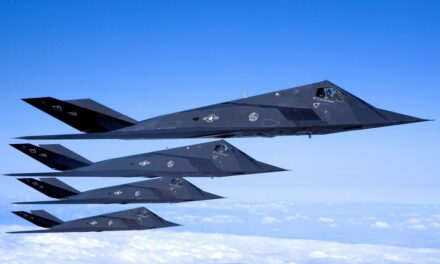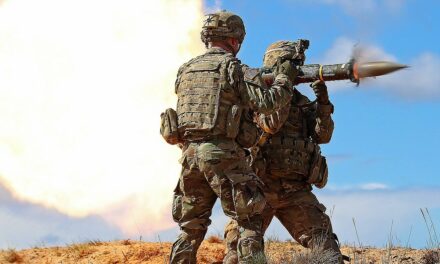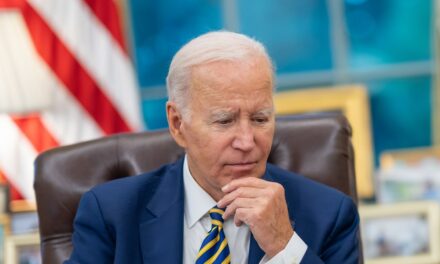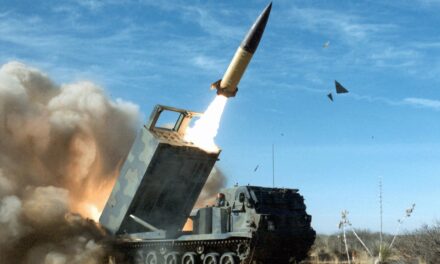We support our Publishers and Content Creators. You can view this story on their website by CLICKING HERE.
Summary: In a move reminiscent of Stalin’s 1930s purge, Russian President Vladimir Putin has recently purged high-ranking military officers amid the ongoing war against Ukraine.
-Five top officials were arrested on corruption charges, and former Defense Minister Sergei Shoigu was demoted.
-This purge weakens the Russian military when it can least afford it, echoing Stalin’s detrimental actions.
-Putin’s paranoia or possible dissatisfaction within the officer class could be driving these actions.
-The instability threatens to undermine Russia’s war effort, potentially benefiting Ukraine and its allies as internal conflicts may further debilitate Russian military operations.
Turmoil in Russian Military: Top Officers Purged Amid War Struggles
It’s the late 1930s in Russia again.
Then, Soviet dictator Joseph Stalin conducted a massive purge of his army officers, targeting the marshals, generals, and admirals who served as the backbone of the Soviet armed forces. Needless to say, the purge severely weakened the Soviet Union’s military and enabled Nazi Germany to make rapid advances in the summer of 1941.
Now, Russia’s self-elected president Vladimir Putin has started a purge of the army at the same time that his country is embroiled in a savage war against Ukraine, one that it cannot win anytime soon if at all. Presumably ignorant of or oblivious to the historical parallels, Putin is sowing chaos within the Russian armed forces at precisely the time that they can least afford it.
Back in the 1980s, Russians joked that Michail Gorbachev must have been a CIA agent in light of the destabilizing effects of perestroika and glasnost on the USSR. It may be time to revive that joke, but with Putin as Langley’s man in Moscow.
Within the last month, five high-ranking military men have gotten the axe: Deputy Defense Minister Timur Ivanov, Lieutenant-General Yuri Kuznetsov, head of personnel at the Ministry of Defense ministry, Major-General Ivan Popov, former commander of Russia’s 58th army, the deputy head of the General Staff, Lieutenant-General Vadim Shamarin, and the head of the Ministry of Defense’s Department for State Procurement, Vladimir Verteletsky. At the same time, former Minister of Defense Sergei Shoigu was demoted to Secretary of the Security Council and replaced by an economist with no military experience, Andrei Belousov.
All five men were arrested on charges involving fraud, bribe-taking, and corruption. The charges shouldn’t be taken at face value, as absolutely everyone within the mafia-like fascist system Putin has constructed is corrupt. It’s only a matter of degree. For the Kremlin to accuse any of its factotums of corruption is, therefore, akin to Al Capone’s accusing his hitmen of employing violence.
So, the arrests are not about ridding Russia of corruption: Putin would have to resign for that to be even within the realm of possibility. Instead, the arrests are about eliminating potential opposition within the military to Putin. The comparison with Stalin is apposite. His officers were loyal, but his morbid paranoia persuaded him that they were traitors who had to be eliminated. It’s equally possible that these five individuals, and the others to come, have no qualms about Putin’s leadership. Instead, Putin may be as paranoid as Stalin. After all, during the Covid pandemic Putin hid in his network of bunkers and took extraordinary precautions before meeting anyone from the outside world.
But it’s also possible that Putin is committing another major blunder by thinking that the armed forces need to be rejuvenated in such a manner. Were there no war, he might be right. But with Russian forces taking a beating on the front—losing over a thousand soldiers a day in exchange for snail-like territorial advances—Putin is effectively eviscerating the army command structure. Russians should weep; Ukrainians should rejoice and hope for the purge to continue and intensify.
The corruption may all be in Putin’s twisted imagination, but we shouldn’t discount the possibility that there’s serious dissatisfaction within Russia’s officer class. Their armed forces, touted just a few years ago as the second most powerful army in the world, have been reduced to the second most powerful army in Ukraine. Nothing better illustrates the sad condition of this once mighty army than Putin’s junkets, with hat in hand, to North Korea and China. Russia’s generals are a proud lot, and it’s inconceivable for them not to be unhappy with what Putin has done to their army.
Back in June 2023, during the attempted coup led by Wagner leader Yevgeni Prigozhin, the army’s silence and inaction were striking. Instead of intervening loudly and enthusiastically on Putin’s behalf, his generals appeared to wait and see how things developed before getting involved. After the coup fizzled, a number of generals fell from view or were transferred.
Given the opaque nature of Putin’s Russia, we can’t know for sure just what these recent arrests mean. At the very least, they bespeak some kind of ongoing power struggle, perhaps about the shape of the government, perhaps about the future of Russia, perhaps about Putin. If Russian history is any guide, then that power struggle will expand, intensify, and quite possibly destabilize the system.
Whatever the case, the turmoil can only harm Russia’s war effort. The West and Ukraine can only wish that Putin and the generals will continue to duke it out until both are bloodied and weak.
About the Author: Dr. Alexander Motyl
Dr. Alexander Motyl is a professor of political science at Rutgers-Newark. A specialist on Ukraine, Russia, and the USSR, and on nationalism, revolutions, empires, and theory, he is the author of 10 books of nonfiction, including Pidsumky imperii (2009); Puti imperii (2004); Imperial Ends: The Decay, Collapse, and Revival of Empires (2001); Revolutions, Nations, Empires: Conceptual Limits and Theoretical Possibilities (1999); Dilemmas of Independence: Ukraine after Totalitarianism (1993); and The Turn to the Right: The Ideological Origins and Development of Ukrainian Nationalism, 1919–1929 (1980); the editor of 15 volumes, including The Encyclopedia of Nationalism (2000) and The Holodomor Reader (2012); and a contributor of dozens of articles to academic and policy journals, newspaper op-ed pages, and magazines. He also has a weekly blog, “Ukraine’s Orange Blues.”

 Conservative
Conservative  Search
Search Trending
Trending Current News
Current News 





